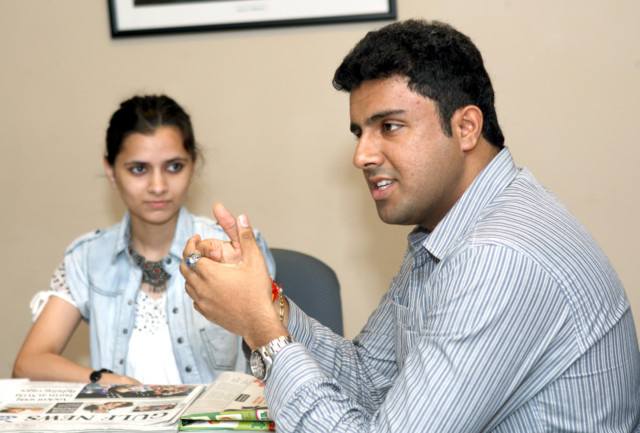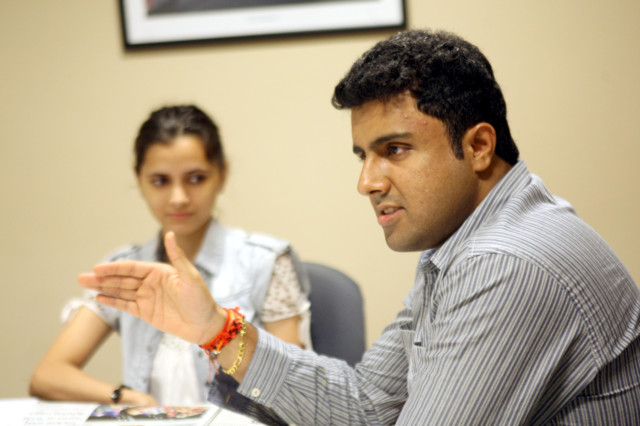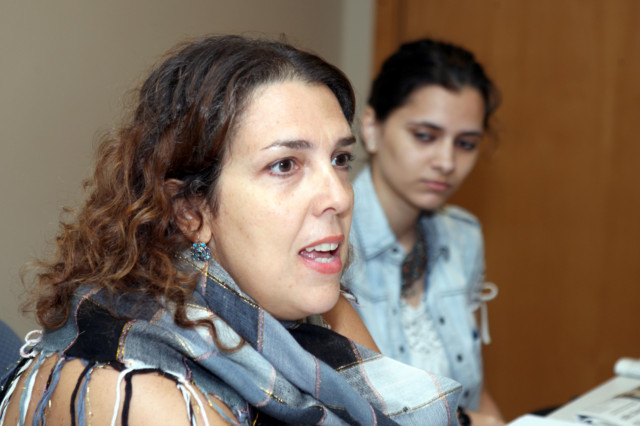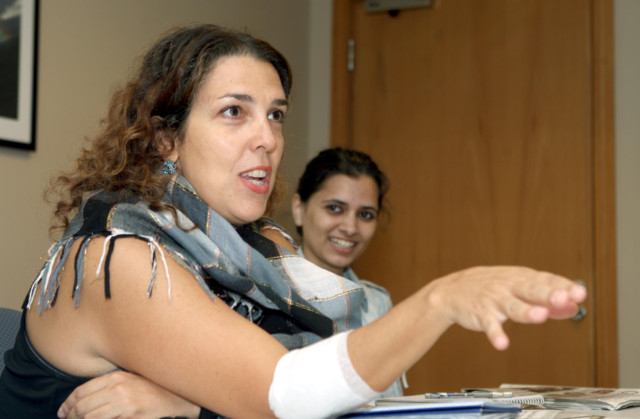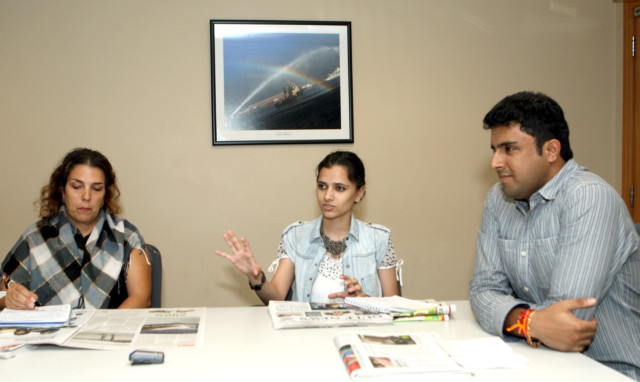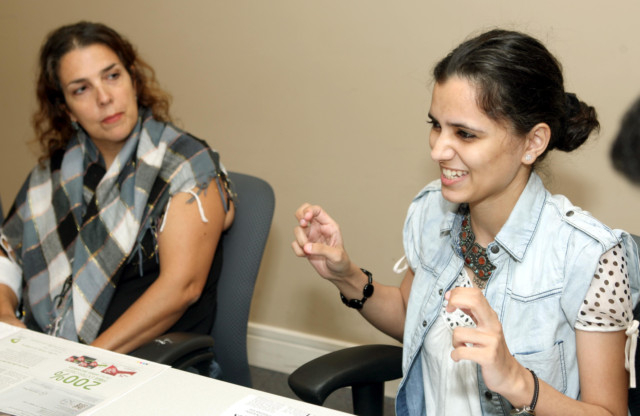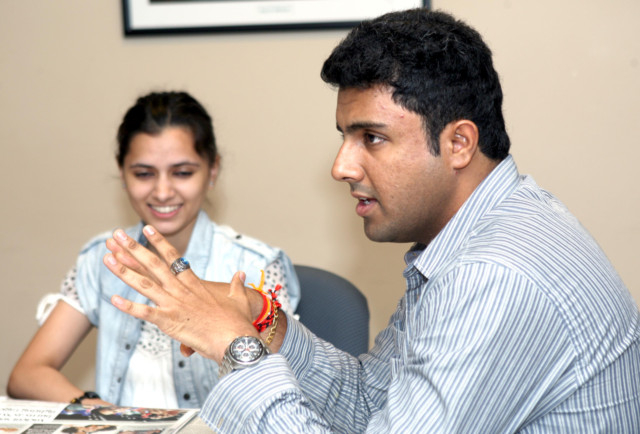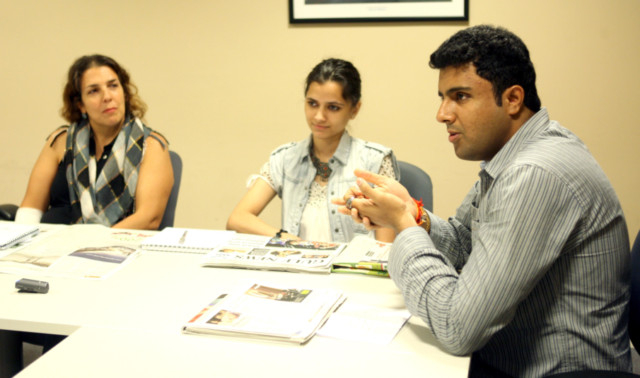
Gulf News: Rich people are rich because they are stingy.
Montserrat Martin: In fact, I think it is the opposite — people who are risk-takers and are able to put all their assets out there to generate funds are those that become rich. Being able to put all your money out there is the opposite of being stingy. Also, those who sleep with the money under their mattress will probably lose all their money in a flood. I think the people who actually have a knack for making money first of all have a high risk-taking ability and secondly are very particular about documenting where they are putting their money. Also, the term of stingy is so generic. It has to do with a lot of things — your culture, how you’ve been brought up, what are your goals in life in terms of principles and how far will you go to make use of that money to help others. What could be stingy to me, could be being money concious to someone else. Also, I think the nouveau riche are more stingy than those who are are born into a family with generations of being wealthy.
Aisha Naseem: I don’t think being stingy is a problem. It is very stereotypical to use the word ‘stingy’. If I’m saving money, it is something that I feel is good for me and my future. It is something that people do for their own satisfaction and their future plans. Also, it depends largely on the kind of environment you are conditioned in. If you are born into a family where, throughout the ages, you’ve known your family to be extremely generous, it doesn’t matter what turmoil is going on in the outside world, whether it is Ramadan or it isn’t, the atmosphere remains the same. But also, being charitable or stingy is something that can be seen throughout all classes of society. In fact, when you go down the ladder, you will see that people hold on to their purses a little more, they feel they have to save. It is more to do with saving than being stingy. Because, if you look at it, the retail industry continues to grow — spending is increasing, demand is increasing. You also don’t know what those that are rich do on the side. You don’t know if they are involved in charity. They might be involved in charity work but don’t want you to know about it because it is something that is personal and close to them.
Gokul Gopakumar: One thing I want to stress on is that with rich people — in general — there’s a lot of expectations of them. Regardless of what it is, you expect the person who is rich to be really free with his money, because you feel like you’d do the same if you were in that position. But that’s a complete judgement. You don’t know for sure what you would do in that position. Also, the community is built in such a way that we don’t have any right on their money. But coming to the main question, I think if you are stingy, you really won’t reach too far. You will only be able to reach to a certain position.
Montserrat Martin: I really want to challenge this concept – who became rich by being stingy? Unless you are talking about some governments who do a lot of cutbacks from here and there and are extremely stingy. For example, I come from a nation [Spain] where the pension is without any monetary compensation and they are cutting back on the health system. But then I don’t think people become rich by being stingy. But on the other hand, I am involved with animal welfare work, and I come to see the layers of society – people who have a lot of money and people who have nothing. And I can tell you that 90 per cent of animals survive on the road because of workers, not rich people. I don’t know if the workers are the ones who have time to work and are also able to find the time to help those animals that might be dying near them and whether rich people are not focused on such things ... I don’t know. But what I can tell you is that animals on the street survive because of the middle and low-income people. We get very wealthy couples living in villas and they will not foster a tiny little kitten. And then you will find a family living in a little apartment, yet they say, “Bring it in”.
Gokul Gopakumar: This week, I was in a taxi and somebody had left their shopping bag in the car. The driver told me he would’ve gone back to Dubai [from Sharjah] to return the bag, but the owners wouldn’t probably even give him enough money to cover the cost of driving to Dubai. In that situation [“Dh10 reward for honest cab driver who returned Dh36,000”, Gulf News, September 26], everybody would feel that the person deserved more money. An honest act should not go punished. But that’s how this community is built. Anybody with a lot of money is not really charged to do anything about that money and help the community. I mean, think about it – they can sit back and keep the money in their bank accounts and do nothing about it and that’s allowed. It’s okay. If you have money, it is up to you what you want to do with it. There is just community pressure for you to give some in charity but there is no rule per se asking you to spend a certain amount.
Gulf News: Nowadays, a lack of integrity can be compensated with if you are resourceful.
Montserrat Martin: We talk a lot about others’ integrity, rather than focussing on our own. I will make sure that my neighbour is generous with her housekeeper, see if she lets her go out on the weekend, but I’m not focusing on my own stuff. Generosity and integrity come from within, not on what others do. A
Aisha Naseem: Nowadays, when it comes to integrity or chivalry, we are more often pleasantly shocked if we see it, rather than it being something that should be normal. When we meet people who have reached a certain position in society and we find them to be very warm, it shocks us. “Oh my God, the person is so down to earth!” When it comes to integrity, it is something that is very personal. You can never have a 100 per cent replacement for integrity. If you always come on time and always follow basic etiquette, no matter what people say about you in the office, there will always be a ringer in their mind that this particular employee always reports on time and if you need him, he’ll be there. And then there are others about whom people will say, “Yes, he can talk a lot, but he can’t do much.” Also, you can be resourceful, but it needs to be balanced. You should have level of street smartness, too.
Gokul Gopakumar: But why is integrity being separated with being resourceful. When we talk about integrity, why do we think of someone who has no ambition? Everybody who we just described as someone with integrity seems to be someone with no ambition and that makes no sense because a person with ambition and with integrity can make it. My dad is my role model, and he’s made it all the way up and he is completely straightforward. There were so many circumstances where he could have made so much money, but he’s always taught me that you can sacrifice a little integrity and get ahead but you are not going to stay there. You’ll jump over a few rungs, but you’ll slip over them when you come down. It could be that maintaining integrity is getting harder in today’s world but I don’t think it is valued any less because there are so many more moral conundrums – nothing is really black and white. Most of life is in the grey area, and all that is really tough to deal with. And that might be because back in the day integrity and morals and ethics all came from either your culture or your religion or something similar – those were the sources of your decision making.
— Complied by Huda Tabrez/Community Web Editor


